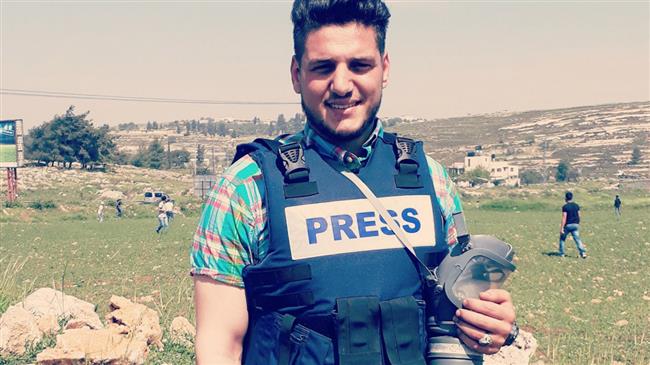Alwaght- Photojournalist Mutasim Saqf al-Hayet resigned from al-Arabiya television over the Saudi-owned channel’s “unprofessional” policy towards the Palestinian cause.
“Due to al-Arabiya channel's unprofessional policy towards the Palestinian issue, I announce the end of my career as a photojournalist with al-Arabiya Palestine, which is affiliated with al-Arabiya channel. God is our provider and our ultimate source of sustenance,” Mutasim Saqf al-Hayet wrote in a post published on his Twitter page on Saturday evening.
His resignation comes on the heels of an al-Arabiya report, which wrongfully accused imprisoned Hamas members of beating and torturing former Palestinian detainee Mansour Shehatit over an alleged dispute with Hamas leader Yahya Sinwar.
The Supreme Committee of Hamas Prisoners categorically dismissed the report in a statement.
Hamas called upon all concerned parties to prosecute al-Arabiya TV legally, and to criminalize the channel morally for exploiting the sufferings of a former Palestinian prisoner to advance its own agenda.
“Al-Arabiya and like-minded channels were the first suspicious stations to support normalization [with Israel] rather than focus on the role of the Zionist Occupation in the medical neglect of a large number of Palestinian prisoners, including Mansour Shehatit and martyr Aziz Awizat,” the statement said.
Israeli officials released Shehatit, a resident of Dura city which lies 11 kilometers southwest of Hebron (al-Khalil) in the southern occupied West Bank, last Thursday after he spent 17 years in the regime’s prisons.
The Palestinian Prisoners’ Club has held the Tel Aviv regime fully responsible for the situation of the former prisoner.
It noted that Israeli authorities had isolated Shehatit for more than 10 years, and that officials neglected sick Palestinian prisoners and tortured them through solitary confinement.
The former prisoner reportedly suffers from psychological and neurological diseases.
He was apparently subjected to severe torture and solitary confinement for long periods during his detention, which caused him to develop a state of amnesia that prevented him from recognizing his mother, brothers and a large number of his relatives – in a scene that all those who received him cried.
More than 7,000 Palestinian prisoners are currently held in some 17 Israeli jails, with dozens of them serving multiple life sentences.
Over 350 detainees, including women and minors, are under Israel’s administrative detention.
The so-called administrative detention, which is a form of imprisonment without trial or charge, allows authorities to incarcerate Palestinians for up to six months. The duration could be extended for an infinite number of times.
Some Palestinian prisoners have been held in administrative detention for up to 11 years.



























